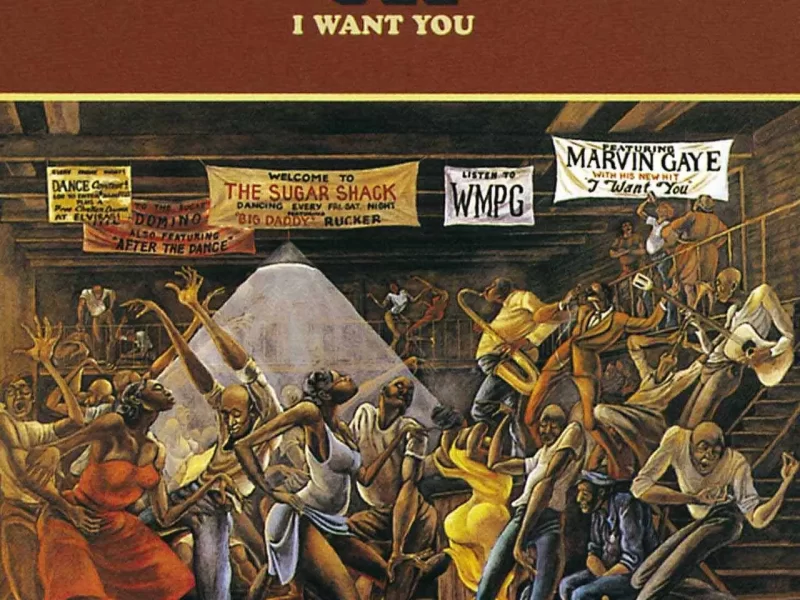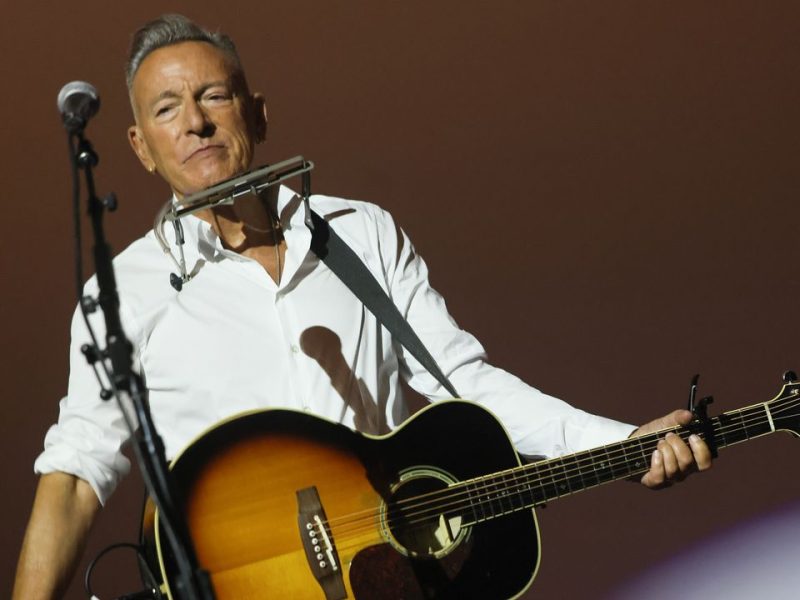When Chris Cornell died, the rock’n’roll world lost not only a charismatic frontman, but also one of its most transcendent voices.
Listen to the best of Chris Cornell on Apple Music and Spotify.
Chris Cornell was undoubtedly one of the most talented and versatile frontmen in the history of rock. The possessor of a remarkable, multi-octave vocal range, his singular abilities played a key role in setting Soundgarden apart from their grunge-era rivals. His visceral performances on supercharged metal anthems such as “Jesus Christ Pose” built his reputation as a distinguished heavy rock vocalist, but he also displayed a subtlety and sensitivity rare within the hard rock and metal fraternity. This dexterity also allowed him to excel when tackling material as disparate and challenging as the moody, atmospheric “Fell On Black Days” and the acid-fried psychedelia of the band’s signature hit “Black Hole Sun.”
Born into an Irish-American family in Seattle, Cornell (birth name Christopher John Boyle) was immersed in music from an early age. Learning to play guitar, piano, and drums while still in his formative years, he formed Soundgarden with guitarist Kim Thayil and bassist Hiro Yamamoto in 1984. Later joined by drummer Matt Cameron, the band featured on the pivotal Deep Six compilation (alongside fellow grunge architects Melvins and pre-Mudhoney outfit Green River) and recorded several early EPs for legendary imprint Sub Pop, before receiving widespread recognition for their debut album, 1988’s Ultramega OK. The record featured an early Cornell classic, “Beyond The Wheel,” which showed off both the band’s trademark thunderous riffage and his nascent vocal prowess.
Soundgarden became the first of the pioneering Seattle grunge outfits to sign with a major label, in their case A&M Records, who released the band’s streamlined sophomore album Louder Than Love in 1989. The first Soundgarden record to feature on the Billboard 200, the album attracted critical acclaim, with Rolling Stone declaring “Chris Cornell has the sort of soaring, muscular voice Ian Astbury can only dream of.”
Soundgarden were in their ascendency, but in 1990 tragedy struck when Andrew Wood, Cornell’s former roommate and vocalist with local heroes Mother Love Bone, died of a drug overdose. Wood’s death shook Cornell, who in response wrote two dark, but affecting songs, “Reach Down” and “Say Hello 2 Heaven.”
He later recorded these and a full album’s worth of material with assistance from Wood’s Mother Love Bone bandmates, Jeff Ament And Stone Gossard, lead guitarist Mike McCready, Soundgarden’s Matt Cameron and a then-unknown vocalist Eddie Vedder and released the record under the name Temple Of The Dog. The band’s lone, self-titled album came out in 1991 and eventually went platinum. Minus Cornell and Cameron, the remainder of the group re-formed as Pearl Jam, issuing their multi-platinum-selling debut, Ten, in 1991.
Having recruited new bassist Ben Shepherd, Soundgarden broke through to the mainstream with 91’s Badmotorfinger. The album featured several of the band’s best-loved songs, with “Outshined” and “Rusty Cage” (later to be covered by Johnny Cash on American II: Unchained) becoming huge MTV hits and helping propel Seattle to the forefront of the world’s music scene along with releases by Nirvana and Pearl Jam.
Badmotorfinger went double-platinum, but 94’s Superunknown made them bona fide global superstars. Certified five times platinum, the album bequeathed a string of hits, with the Grammy Award-winning “Black Hole Sun,” “Spoonman,” “The Day I Tried To Live,” “My Wave” and “Fell On Black Days” dominating the mainstream rock and alternative charts for the next 12 months.
Showcasing Cornell-penned classics “Pretty Noose” and “Burden In My Hand,” 1996’s Down On The Upside again shot to No 2 on the Billboard 200, but Soundgarden split the following year. For Cornell, however, further personal peaks were down the line. His first solo album, Euphoria Morning yielded the hit “Can’t Change Me,” before he joined forces with Rage Against The Machine trio Tom Morello, Tim Comerford, and Brad Wilk to form alt-rock supergroup Audioslave.
This new outfit again hit Soundgarden-esque heights. Featuring hits such as “Cochise” and the brooding “Like Stone,” their eponymous 2002 debut went gold, while 2005’s platinum-selling Out Of Exile debuted at No 1 on the Billboard 200. After Audioslave’s third, Revelations, Cornell returned to his solo career, with both 2007’s Steve Lillywhite-produced Carry On and his under-rated Timbaland collaboration Scream scoring Billboard Top 20 hits. Elsewhere, he further broadened his artistic horizons, writing and performing “You Know My Name,” the theme song from the 2006 James Bond movie, Casino Royale and received a Golden Globe nomination for his song “The Keeper” from the film Machine Gun Preacher.
To the delight of his fans, Cornell rejoined Soundgarden for 2012’s impressive reunion album, King Animal, though he continued to parade his versatility, issuing the intimate acoustic live album Songbook and another well-received studio solo set Higher Truth in 2015. Keen to accept fresh challenges, shortly before he passed away he had completed an orchestral number “The Promise,” earmarked for the movie of the same name; completed a long-awaited and critically-heralded US tour with Temple Of The Dog, and was reputedly due to begin work on Soundgarden’s mooted seventh studio album.
With Soundgarden alone, Chris Cornell sold over 15 million albums in North America and his 30-year career was littered with industry awards and critical acclaim. Yet he remained levelheaded, carried himself with dignity, and remained someone who his fans could always look up to. During Soundgarden’s initial meteoric rise, he told Rolling Stone, “I can’t say we’re motivated by anything but achievement, and the achievement isn’t based on things like Grammy nominations or chart positions. It’s based on what we do musically and how we personally feel about it.” And he never deviated from that path of truth and soul.
Looking for more? Discover the best Soundgarden songs.



